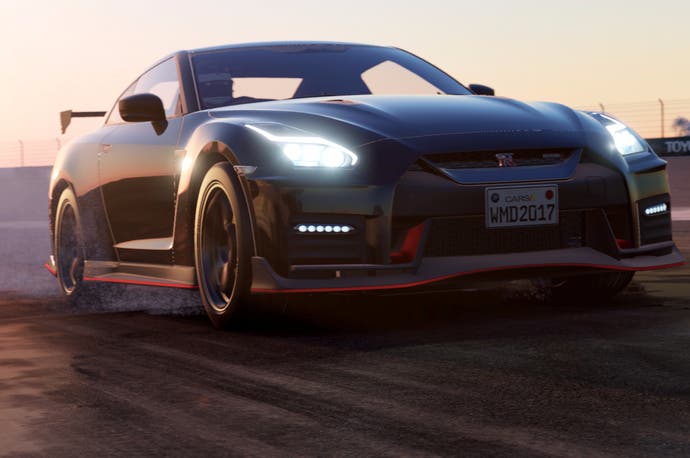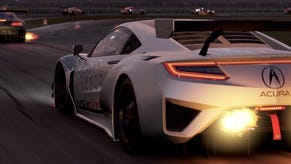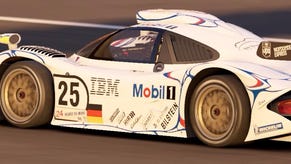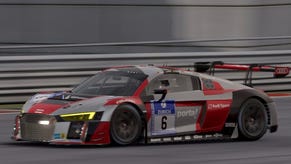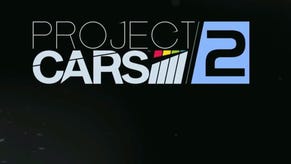Project Cars 2 runs best on PlayStation 4 Pro
Console performance analysed: Sony's super-charged console gets closest to a locked 60fps.
Project Cars 2 reviews have dropped, the Forza Motorsport 7 demo arrives today and Gran Turismo Sport is en route. It's a huge couple of months for racing sim fans, and we're off to a good start with Slightly Mad's sequel, packed with a raft of new technological features. The question is, in light of the sometimes shaky frame-rate found in its predecessor, how well does the sequel match up - and what are the advantages of running on PlayStation 4 Pro?
At its core, Project Cars is designed around creating a dynamic racing environment, where shifting weather conditions regularly change how each race plays out. Handling is altered with the transition from dry to wet surfaces, changing how much grip and control is present, while splashes of water partially obscure the upcoming track. It's an aspect of the game further expanded upon in this sequel.
A new snow season covers the trackside in icy details, while wintery conditions ranging from light snowfall to a full-on blizzard round off the extra dynamic weather effects. Existing wet weather conditions are also enhanced via the use of fluid dynamics - a feature that sees pools of water build up on the track when it's raining heavily, later receding as the weather changes and the track begins to dry out. Other elements such as changes in ambient and track temperature along with atmospheric shifts all impact on car performance too, with tyres, braking, and aerodynamics all factored into the calculations.
Some of these features are reserved for 30fps racing games like Forza Horizon and DriveClub, but Slightly Mad Studios implements these aspects into Project Cars 2 while still targeting 60fps across all platforms. It's certainly an ambitious task given the limits of the PS4 and Xbox One hardware, so how has the developer managed this? Pixel-counting suggests that dynamic resolution scaling is in effect across all consoles. Instead of the fixed 1080p/900p resolutions found on the original PS4 and Xbox One versions, pixel counts now adjust according to rendering load.
Based on initial measurements, we're looking at between 1080p to 864p on PlayStation 4, while on Xbox One resolution tops out at 972p (a little increase over the 900p in the first Project Cars), and falls to 864p when the engine is under intense load. As a result, image quality isn't quite as consistent as the first Project Cars, with some roughness creeping into the presentation in demanding scenes where resolution drops, but in less stressful races with 16 cars and clear conditions, the game appears crisp across both consoles. PlayStation 4 features a little more refinement here, but the gap is quite subtle at regular viewing distances.
The same dynamic set-up is also present on PS4 Pro, which is given full support for this sequel, with both resolution and performance boosts over base hardware. Our measurements suggest that the game features a target resolution of 1440p, but this drops to 1360p during demanding moments, such as racing under stormy conditions with the full quota of 32 cars in play. It's an improvement over base hardware when viewed on a UHD TV, but it isn't enough to pass as native 4K, and the scaled image can look quite rough at times. Opinion on this will vary according to taste, but Project Cars 2 on Pro does support downsampling, so 1080p display users may get the better deal here.
When it comes to delivering a nigh-on solid 60fps gameplay experience, PlayStation 4 Pro mostly delivers, regardless of whether you're playing on a 4K or 1080p display. Frame-rates rarely waver from the desired target, and outside of stormy stress tests with upwards of 16 cars in play, the game holds firm at 60fps, providing a smooth and responsive racing experience. Even demanding wet weather conditions rarely impact performance heavily. There's a fair amount of tearing on display as cars are bunched up at the start of a race, but frame-rates only incur a minor drop, and these issues clear up once the cars spread out during the race. While momentarily distracting, the relatively constant frame-times and high frame-rate ensure that the game feels good to play and moves at a smooth pace. It's not a perfect 60fps run, but the game isn't too far off the pace, and delivers a significantly superior experience over the standard PS4 and Xbox One consoles.


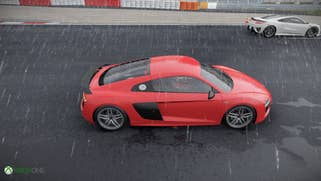

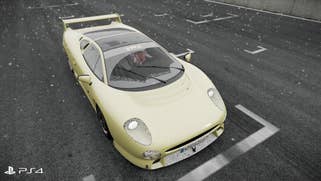
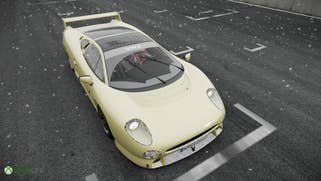
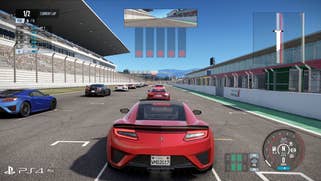
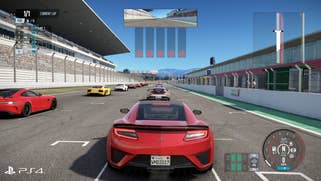

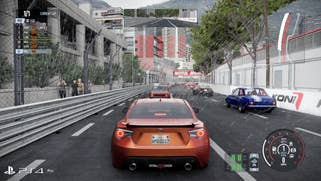


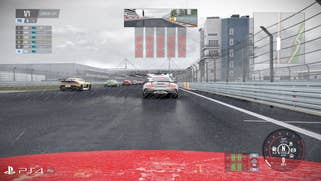
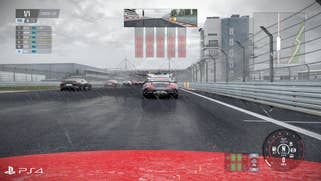
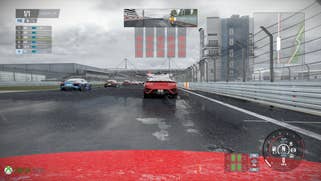
As you may expect, neither base PS4 or Xbox One are able to provide consistent gameplay at a smooth 60 frames per second. Performance is variable depending on race conditions, with the number of cars, weather, and camera viewpoint having an impact on how well the game runs and plays. This means that although much of the gameplay hits the target, both consoles fall short of hitting 60fps under demanding conditions, with plenty of tearing and drops into 40-50fps range - and sometimes below that on Xbox One. Heavy rainfall has the most impact on performance, with the abundance of alpha effects for rain drops and water splashes pushing bandwidth to the limit on both machines. Neither looks or feels great here, with distracting judder caused by dropped and torn frames.
Pared back to 16 cars with racing conditions limited to cloudy or clear skies and things improve considerably - particularly on PS4, where it's possible to hit a stable 60fps for lengthy portions of a race. Performance only drops when cars group around corners, resulting in some tearing and short but noticeable dips in smoothness. Otherwise things hold up pretty well with the absence of snow and rain, and we generally get a decent 60fps experience that works quite well, though the experience can fall a little short on Xbox One.
Overall, there's clear progress in this sequel. The underlying simulation behind the game is more complex than the first Project Cars, yet performance is generally very similar on base hardware. We get an impact to image quality consistency compared to the first game owing to the dynamic framebuffer, but we gain additional upgrades in the form of improved weather and more complex atmospheric elements, which enhance the driving experience nicely. But otherwise, if you've played the first Project Cars, you know what you're getting here in terms of general performance.
It's difficult to avoid the feeling that any limitations are simply down to the current consoles being held back by the ageing hardware, but the good news is that there is an option that delivers a more consistent, visually more impressive solution - PlayStation 4 Pro. What you're not getting is a great 4K presentation, but the trade of pixels for a more fluid gameplay experience is the right one - and it's the best way to play Project Cars 2 right now on consoles.
